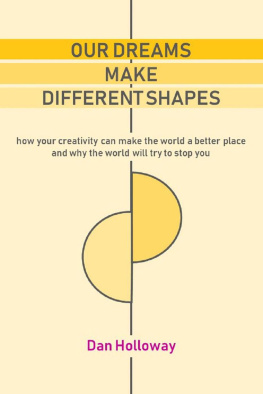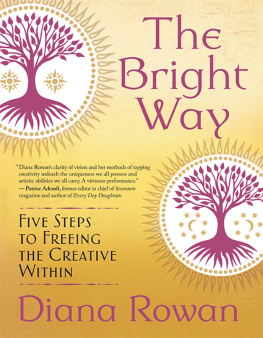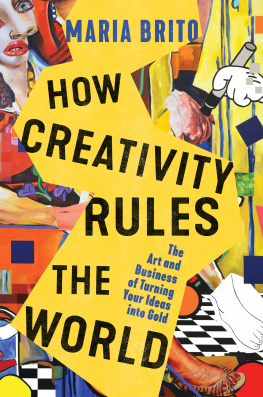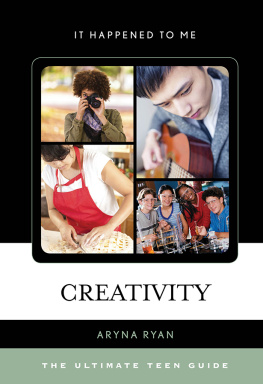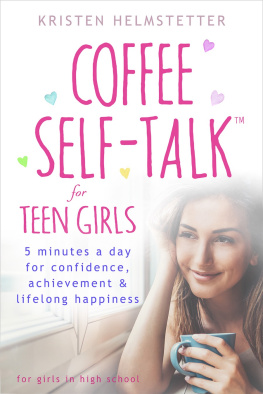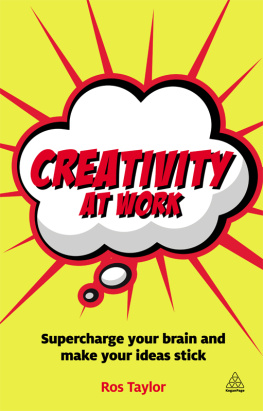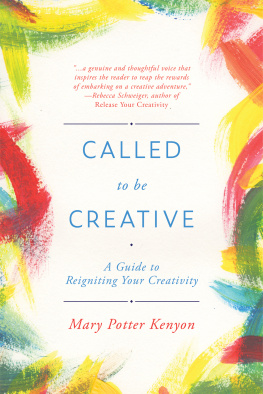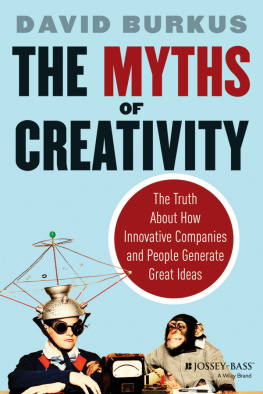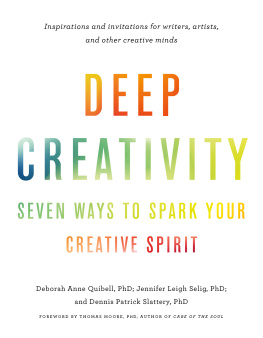Dan Holloway - Our Dreams Make Different Shapes: How Your Creativity can Make the World a Better Place and why the World Will Try to Stop you
Here you can read online Dan Holloway - Our Dreams Make Different Shapes: How Your Creativity can Make the World a Better Place and why the World Will Try to Stop you full text of the book (entire story) in english for free. Download pdf and epub, get meaning, cover and reviews about this ebook. year: 2020, publisher: Dan Holloway, genre: Religion. Description of the work, (preface) as well as reviews are available. Best literature library LitArk.com created for fans of good reading and offers a wide selection of genres:
Romance novel
Science fiction
Adventure
Detective
Science
History
Home and family
Prose
Art
Politics
Computer
Non-fiction
Religion
Business
Children
Humor
Choose a favorite category and find really read worthwhile books. Enjoy immersion in the world of imagination, feel the emotions of the characters or learn something new for yourself, make an fascinating discovery.
- Book:Our Dreams Make Different Shapes: How Your Creativity can Make the World a Better Place and why the World Will Try to Stop you
- Author:
- Publisher:Dan Holloway
- Genre:
- Year:2020
- Rating:5 / 5
- Favourites:Add to favourites
- Your mark:
Our Dreams Make Different Shapes: How Your Creativity can Make the World a Better Place and why the World Will Try to Stop you: summary, description and annotation
We offer to read an annotation, description, summary or preface (depends on what the author of the book "Our Dreams Make Different Shapes: How Your Creativity can Make the World a Better Place and why the World Will Try to Stop you" wrote himself). If you haven't found the necessary information about the book — write in the comments, we will try to find it.
This book is a field kit for would-be world changers
In a world that sometimes feels as though it is crumbling right in front of us, this book is a celebration of, a call to arms to, and a field guide for outsiders. At its heart is a very simple, very stark message: creativity is our only hope of making it out of this alive. Creativity means doing things in new ways so by definition, being creative makes you an outsider. That gives you the freedom to think in ways other people dont, even cant.
But it also comes at an incredible cost: even if you find the answer to our toughest problems, no one will believe you. It is a price creatives have been paying ever since the time of Cassandra, the Trojan princess of Greek myth who was cursed always to tell the truth and never to be believed. This book will help you not only to develop more creative ideas but will help you to communicate them so they are listened to and implemented.
In this book, Dan Holloway provides you with the tools not just to think in new ways but to make sure the potentially world-changing ideas that result are heard. Dan is three times Creative Thinking World Champion, a performance poet, and a mental health activist. He has been rabble-rouser in chief of an international writers collective and a touring poetry troupe; he has advised the most senior figures in the financial sector how to provide more accessible services for mentally ill and neurodivergent customers; he has won the Oxford University Humanities Innovation Challenge for a card game based on the memory systems of mediaeval monks and the brain scans of battle rappers; he has been training people to create more inclusive and innovative worklpaces for more than a decade, during which time he was shortlisted twice for the Oxford University Vice Chancellors Diversity Awards; he has taught creativity, critical thinking and philosophy to people from 5 years old to 95; and he has devised entirely new techniques to help intelligence analysts catch millionaire fraudsters more efficiently.
Dan Holloway: author's other books
Who wrote Our Dreams Make Different Shapes: How Your Creativity can Make the World a Better Place and why the World Will Try to Stop you? Find out the surname, the name of the author of the book and a list of all author's works by series.

